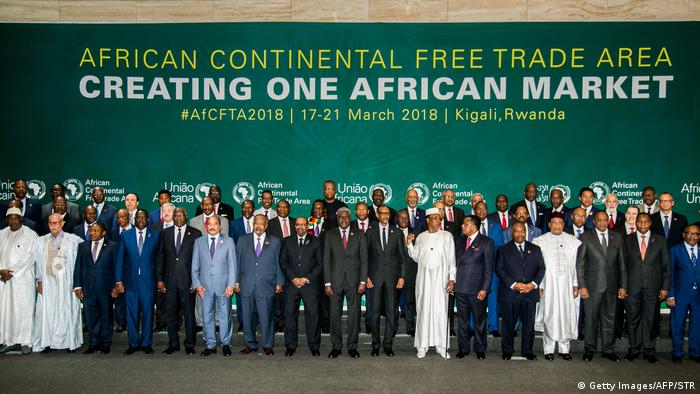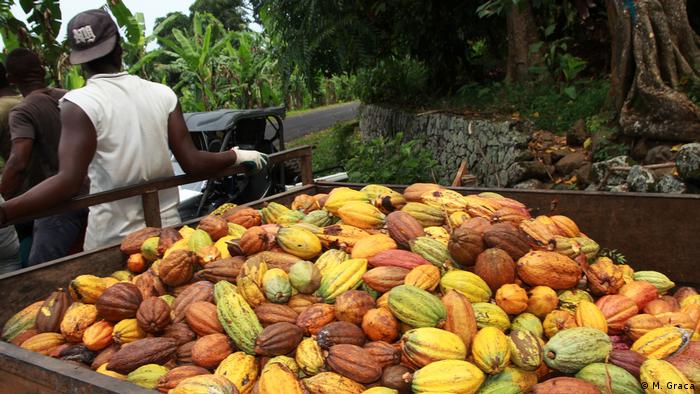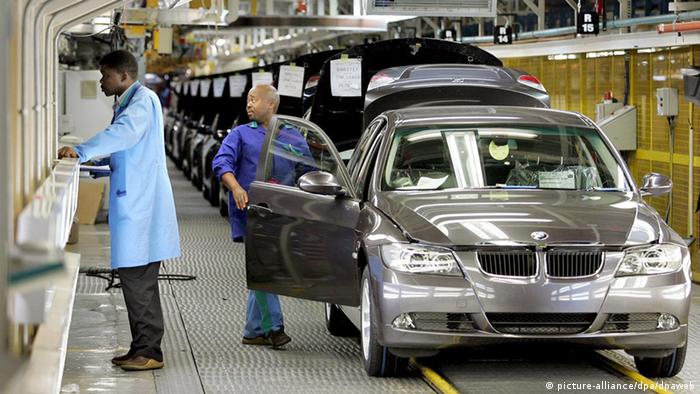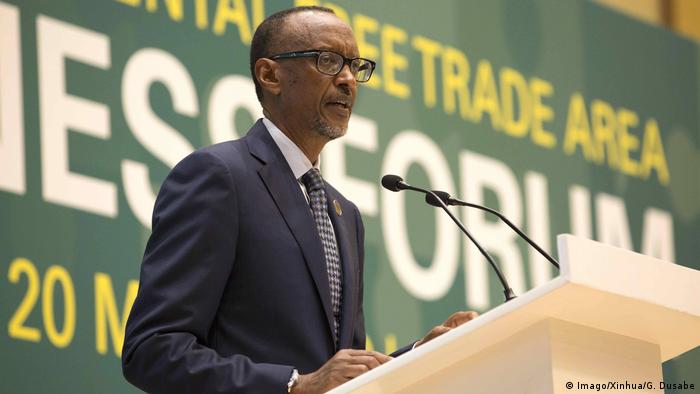African free trade zone is up to now only on paper. Now the Ministers of the so far 23 member States want to agree on the implementation. On the largest economic powers, they have to do without for the time being.

At the AU summit in 2018 in Africa, explained to heads of state and government of their intention of establishing the free trade zone
Boundaries should fall, trade routes in Africa are in bloom. The largest free trade zone in the world, and nothing Less, expect the member States of Africa, a new common market. The agreement on the African continental free trade area (AfCFTA) is entered at the end of may in force; 23 African States have already ratified it. The next step is now to follow: At a Ministerial conference in Addis Ababa, the Ministers will discuss Friday on the way to the future for the newly created Zone. Many details still need to be additional protocols signed and settled before it officially enters into force. Whether you will bring the Africans really the hoped-for economic benefits – this is still music of the future.
Opportunities for young people
The signature created economic market is definitely huge: Should be around 30 other African States of their Commitments, will eventually include one and a half billion people. Politicians hope to create in the future, new business opportunities and jobs for a large number of Africans. The African continent provides raw materials, but, in Africa, not a lot of locally processed products are consumed. They are mostly imported from Western countries or China.

A hope is that Local products could find more takers in the Region
“This agreement is historic,” says the Economist, Muhammad Jagana, former President of the chamber of Commerce in the Gambia. “As a result, options for young people. The often have very creative ideas and want to distribute products and services across the continent,” says Jagana in the DW-Interview and highlights the major hurdles, such an agreement into practice: “We have 54 countries with different legislation,” says the Economist. Since it is not easy to sell goods without border controls.
Economic giants don’t
Jagana relies on the private sector, which should provide for the specific design of the agreement. Otherwise, you will remain in the existing regional economic zones stuck. Attempts to establish regional free trade areas, there is in Africa for decades. For example, the customs Union of Southern Africa (SACU), composed of five States in the Cape and has a more than a hundred years of history. The West African economic community (ECOWAS), the 15 countries in West Africa belong, goes back to 1959, created the West African customs Union. Both have a strong Economy as the driving force: the SACU with South Africa, the ECOWAS with Nigeria.
Also read: The CFA Franc: A currency, the polarized

South Africa, besides Nigeria, the leading African industrial nation
But ironically, these two most powerful industrial countries in Africa to boycott so far, the AfCFTA free trade agreement. “Both countries look more to the inside. You don’t see the opportunities that could have your company through the intra-African trade,” says Jagana. The Zone will offer benefits for all countries in Africa. Smaller countries like the Gambia could benefit, because it is easier to do business within Africa. Citizens could buy at cheaper prices, where Goods would be produced in the Region.
Conflicts of interest
The Togolese economist Yves Ekue Amaizo shows, however, are more pessimistic. In a DW Interview he talks about actual risks of price Dumping between African countries. “Nigerian farmers want to know nothing about it. If cheaper products pushing from the outside on the market, you can produce nothing, for you it means unemployment,” said Amaizo. Same is true for companies in the Nigerian industry: “you want to produce your first four-wheel drive vehicle, and vehicle rolled over, coming from the outside. The are often more powerful and cheaper.” The main concern in the manufacturing and automotive industry, African products does not apply, but rather imports from other regions of the world, which could be in a large customs Union harder to regulate, so is the fear.
The fact that the most populous state of Africa to oil-rich Nigeria, is not part of the AfCFTA, Christoph caster may not be a Problem. The chief Executive of the Africa-Association of the German economy, believes that Nigeria will be able to this African dynamics cannot escape. The economic giant feel alone currently stronger than in the community. The will not but remain so, says molder. In the case of such free trade agreements in many sectors, the winners and losers. To solve this first of all, of course, distributional conflicts, and to Try to lead, to protect the own interests as well as possible, and enforce.
Free trade needs to grow
Even if there is still a lot of time will pass until the complex endeavor of the African free trade zone is a reality: The political will behind the project was “remarkable,” says molder. The African free trade must allow time to grow. Can caster recalls that “the European internal market, not over night” came to be.

Rwanda’s President gave the Initiative by 2018, the decisive impulse
Last, everything went very fast: After years of inactivity, the Rwandan President, and then Chairman of the African Union Paul Kagame brought to 2018, a fresh Wind into the project of an Africa trade zone-wide free. A simplification of the border procedures to pave the way. Within ten years, intra-African trade is expected to constitute up to 25 percent of the continental trade.
For comparison: In Africa, the internal market is currently ten to 16 percent of the total volume in Europe, this share is 70 percent. “The Africans have understood that they need to stick together and that they have a huge potential for development, if you can act together,” says molder to do so. By the AfCFTA of the continent would ultimately also for investors from Europe much more attractive.
Where does the money come from?
Economist Yves Ekue Amaizo, the efforts are commendable, to reduce transaction costs, improve the trade. He but bear in mind that many of the prerequisites for a free trade project were not in place at all. This includes the establishment of an authority for the control of trade and the settlement of trade disputes heard. Or the financing of this new system. Paul Kagame has not proposed a tax of 0.2 percent on imports to Africa, the measure is still in force.
The next steps for a functioning free trade zone address, is now the competent Ministers, in Addis Ababa. In July, the heads of state want to and government of the African Union meeting after the summit officially start work, so that the already signed Zone will become a reality.